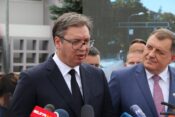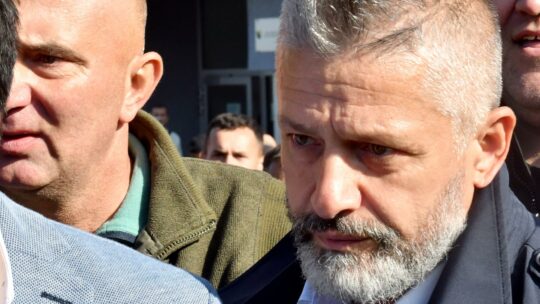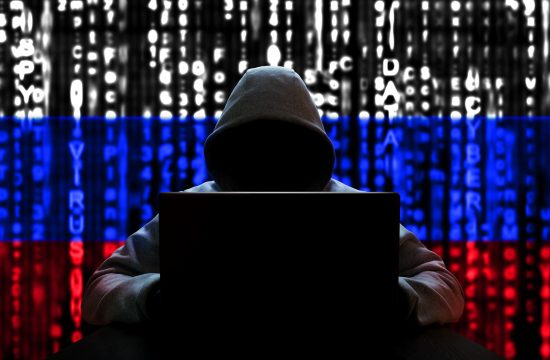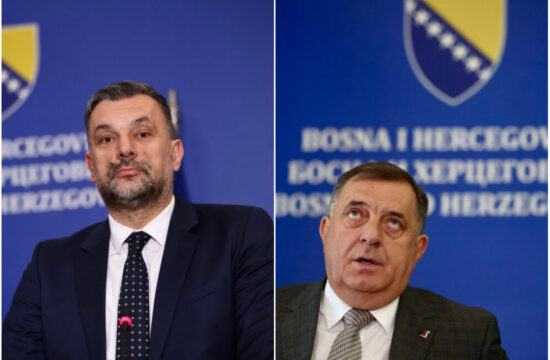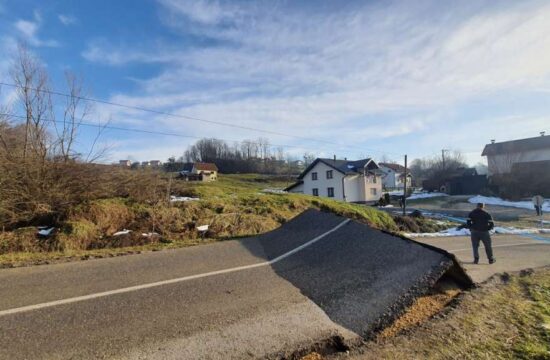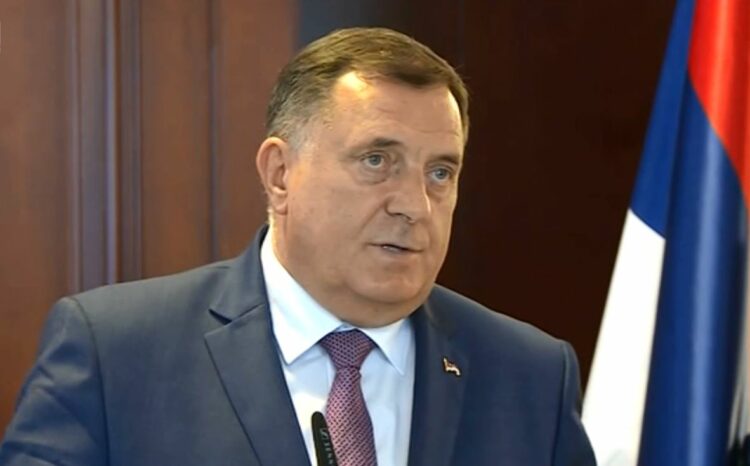
When negotiating the status of Kosovo, Serbia should make it clear that the issue can not be discussed without also discussing the status of Bosnia’s Serb-majority region, Republika Srpska (RS), Bosnian Serb leader Milorad Dodik said after a Thursday meeting between top RS officials and Serbia’s President, Aleksandar Vucic.
But when Vucic addressed reporters, he said his country will stick to Bosnia’s peace agreement from 1995 in which Republika Srpska is part of Bosnia and Herzegovina and continued to list Serbia’s investments in the entity.
Dodik, who is the Serb member of Bosnia’s tripartite Presidency and the leader of the ruling Bosnian Serb party in Bosnia, has been advocating for the semi-autonomous RS region to secede and possibly join neighbouring Serbia for years.
“We see Republika Srpska as a state. The RS has its ambitions, but also its fears. We are very interested in the ongoing talks regarding Kosovo and Metohija. We believe that Serbia has a natural state right and its number one issue is Kosovo and Metohija, but that Republika Srpska should also be Serbia's issue in a national sense,” he said.
“We believe that Kosovo can not be an internationally recognised state in the way some countries in the world accept it. The RS should have the right to be treated in the same way because the circumstances in the way this issue is being discussed are nearly identical,” he argued.
Dodik said that he and RS representatives pointed out to Vucic that “it should be made clear that it is impossible to talk about a possible secession of Kosovo without talking about the status of the RS.”
“We saw that Vucic took this seriously, but he did not comment it,” Dodik said.
“We will try to convince him to view these issues jointly,” Dodik said, adding that this would not represent a breach of Bosnia’s 1995 Dayton Peace Agreement, which ended the Bosnian war.
Vucic told the media after the meeting that Serbia treats the Dayton Agreement as “sacred scripture.”
“We are the guarantor of the implementation of this peace agreement and I would like things to remain within the framework of the Dayton Agreement,” he said.
The Serbian President went more into detail regarding certain projects between the Bosnian region and his country.
“We mentioned the idea for Serbia to start talks with the Government of the Republika Srpska in order to identify a model according to which Serbia could build an airport in Herzegovina, somewhere between (Bosnian towns) Trebinje and Gacko, and for us to manage that airport for 30-35 years,” he said, arguing that it is not a profitable idea but that it would have more of a strategic importance for both the RS and his country.
“It is important that we build a network of airports and to include Herzegovina in it,” he said.
“Right now it takes a lot of time to get from Trebinje, which is one of the most beautiful Serb towns, to Belgrade, for example. We are ready to invest significant money in this and employ people,” he said.
He also said that the construction of the Sarajevo-Belgrade highway was also discussed at the meeting and that Serbia is prepared to invest in constructing a direct connection with the Bosnian city of Bjeljina – the second largest city in Republika Srpska.
Vucic also said that Serbia will secure two million Bosnian Marks for the construction of the Student Center Nikola Tesla in Banjaluka, the administrative centre of the RS.
“We will cover two-thirds of the sum needed for this. You know, when Serbia is paying, it pays everything at once. Students in Banja Luka can look forward to this,” he said.
Both Dodik and Vucic also said they discussed a law on protecting the Cyrillic script and the Serbian language.
“We agreed that we will throughout the next few weeks work on a law on protecting the Cyrillic script and the Serbian language and that we will adopt the same law with an identical text both in Republika Srpska and Serbia,” Dodik said.
“We will not ban anybody from using the script they want to, but the Cyrillic script is something we want to protect and maintain,” Vucic said.

